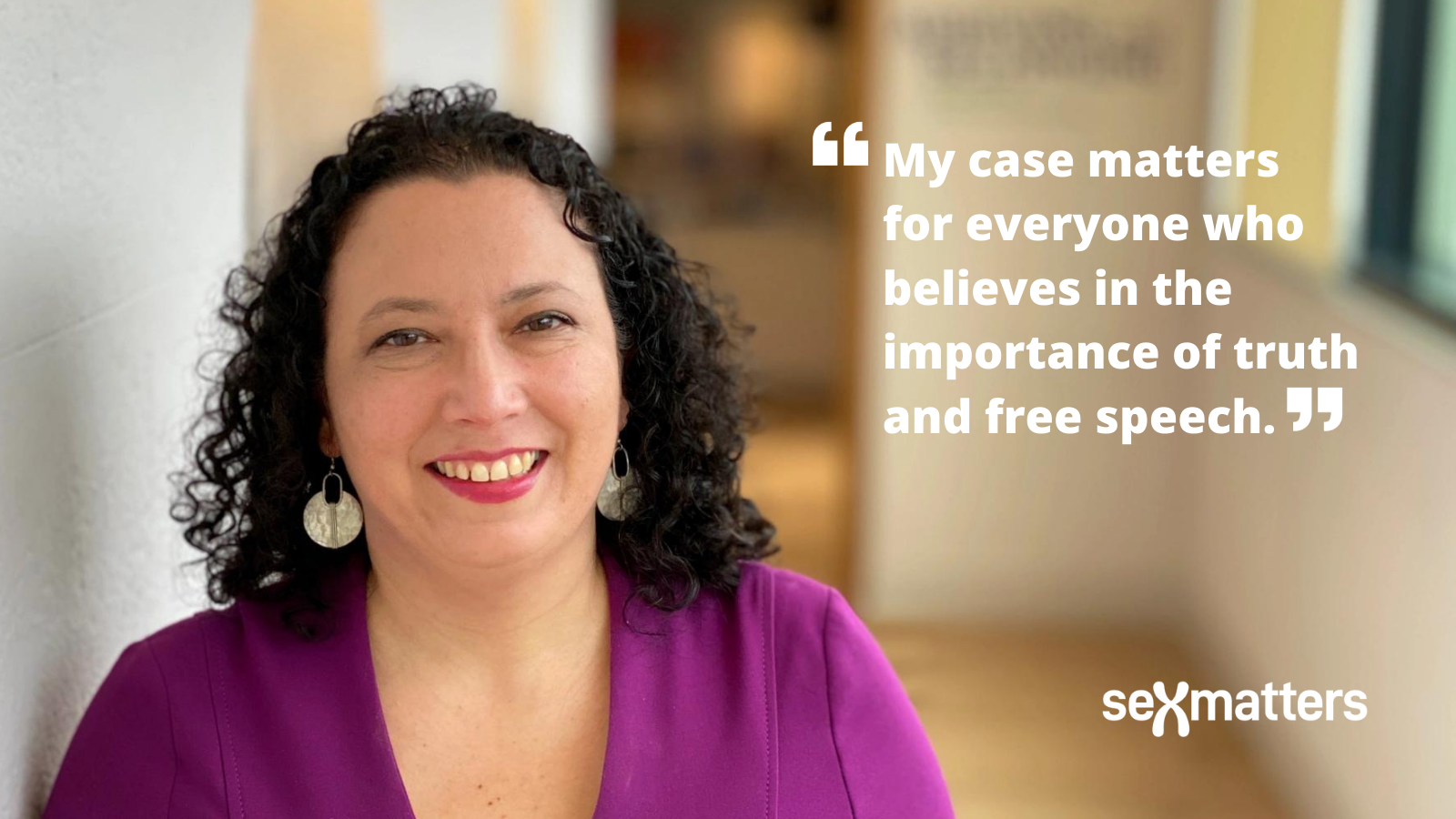A win for free speech and sex-based rights

Sex Matters’ Executive Director, Maya Forstater, has won her employment tribunal case against her former employer.
Maya Forstater, who took a claim for belief discrimination against her former employer, the Center for Global Development, has been vindicated by a ruling that she was unlawfully discriminated against by her former employer on the basis of her protected belief.
This follows a ruling at an Employment Tribunal in June 2021 when Ms Forstater successfully established a binding legal precedent that gender-critical beliefs were in principle protected by the Equality Act. Following that appeal, her case continued at the Employment Tribunal, to determine whether she was unlawfully discriminated against by her former employer on the basis of her protected belief.
The Tribunal unanimously found that, as acts of unlawful discrimination on the basis of Ms Forstater’s beliefs, CGD:
1. Did not offer her an employment contract;
2. Did not renew her visiting fellowship; and
3. Removed her from its website.
Among the findings in the judgment are that Ms Forstater’s tweets and comments, which formed the basis of CGD’s treatment of her, were statements of her protected gender-critical beliefs. The negative consequences which flowed from them were therefore unlawfully discriminatory.
The statements that Maya Forstater made in this regard included:
- “A man’s internal feeling that he is a woman has no basis in material reality”.
- Describing Pips Bunce, a male who identified as a woman for part of the week, as a “part time cross dresser”.
- Drawing an analogy between self-identifying transwomen and Rachel Dolezal.
- That “the places that women and girls get assaulted and harassed are ‘normal life’”; in the context of a discussion of whether recognising transwomen as female potentially posed a risk to women and girls. This was not, as CGD’s counsel had argued, “catastrophising” but was instead “an unobjectionable observation in the course of the debate … [which was] not an objectively unreasonable observation to make”.
- That describing self-identification as a woman as “a feeling in their head” was not to equate self-identification with mental illness and “did little more than assert Ms Forstater’s gender critical belief”.
The Tribunal also recognised that Ms Forstater had been entitled to criticise those holding an opposite view to her, and had done so legitimately. The Tribunal found in particular that the mere fact that offence may be taken to a particular statement was not sufficient to render it incapable of legal protection. This included describing opposing views as “stupid, dangerous or unfair” and the statement that allowing male-bodied individuals access to women-only spaces gave rise to “an increase in risks, threats and discomfort” to women.
Forstater, a public policy researcher, who co-founded human rights organisation Sex Matters a year ago, welcomed the verdict.
“My case matters for everyone who believes in the importance of truth and free speech.
We are all free to believe whatever we wish. What we are not free to do is compel others to believe the same thing, to silence those who disagree with us or to force others to deny reality.
Human beings cannot change sex. It is not hateful to say that; in fact it is important in order to treat everyone fairly and safely. It shouldn’t take courage to say this, and no one should lose their job for doing so.
I am pleased that the Tribunal has allowed me to put on record what happened to me at the Center for Global Development. The tribunal has found that I was a victim of discrimination because I stated that biological sex is real and important, a view shared by the vast majority of people in this country. I hope employers will take note of the judgment.
I would like to thank my family, who have gone through this with me over the past three years, and my legal team: barristers Ben Cooper QC and Anya Palmer, and my solicitor Peter Daly. Above all I want to thank the thousands of women and men who sent me their support, and in particular JK Rowling for standing by me in the darkest of days.
To hear that my case has helped other people to speak up against unfair and discriminatory practices at work makes the hardship of the last three years easier to bear. All those who are fighting similar battles — and there are many such people now — have my solidarity and support.
I also want to thank all the brilliant organisations fighting to protect sex-based rights. They will make the world a safer, fairer place for women and girls. They are stepping into the democratic space that well-funded organisations like CGD have vacated through cowardice.
CGD’s unfair treatment of me, and prejudice against people who believe that sex is real, changed my life. If the organisation hadn’t ended my employment, I would never have co-founded Sex Matters. I would never have had the opportunity to be part of the amazing movement in the UK to re-assert the importance of sex-based rights.
We have had enough of being sidelined in language, law, policy and public spaces. This judgment is further evidence that the tide is turning.”
